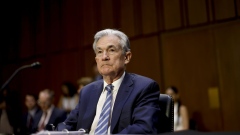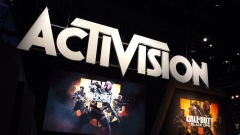Nov 16, 2018
If Assange is a villain, what about Zuckerberg?
, Bloomberg News

Now that we know, apparently thanks to an error by American prosecutors, that Julian Assange has been secretly charged with a crime in the U.S., it’s interesting to revisit an eight-year-old column by Time magazine’s managing editor, Richard Stengel, that compared the WikiLeaks founder to Facebook’s Mark Zuckerberg.
In 2010, Time named Zuckerberg Person of the Year, though its readers had voted for Assange. To explain the magazine’s decision, Stengel draw a parallel between the two men.
In a sense, Zuckerberg and Assange are two sides of the same coin. Both express a desire for openness and transparency. While Assange attacks big institutions and governments through involuntary transparency with the goal of disempowering them, Zuckerberg enables individuals to voluntarily share information with the idea of empowering them. Assange sees the world as filled with real and imagined enemies; Zuckerberg sees the world as filled with potential friends. Both have a certain disdain for privacy: in Assange's case because he feels it allows malevolence to flourish; in Zuckerberg's case because he sees it as a cultural anachronism, an impediment to a more efficient and open connection between people.
This reflects the optimistic view of Facebook’s ability to empower and connect people that was prevalent in 2010. That mission contrasts with the negativity of Assange’s endeavor: the exposure of enemies “real and imagined.”
The comparison looks a lot different from a 2018 vantage point.
As it turns out, Zuckerberg’s brainchild amplifies divisions as effectively as good relationships, and it’s been convincingly argued that it has helped instigate hate and violence. In country after country, Facebook has been a preferred medium for the spread of fake news during election campaigns and the platform for echo chambers reverberating with venomous prejudice. According to an expose published in The New York Times this week, the social-media giant has tried to cover up its failings and resorted to public opinion manipulation to minimize the backlash.
Zuckerberg still doesn’t seem to realize the extent of the damage. In a post published Nov. 15, he boasted that in the third quarter of 2018, Facebook was able to identify proactively “about 63% of the hate speech we removed in Myanmar, up from just 13% in the last quarter of 2017.” I doubt this made much difference to the Rohingya minority of Myanmar, who have been the target of violence as a result of incitements to hatred on Facebook.
Assange, for his part, has gone on publishing leaked documents. There’s evidence that WikiLeaks has solicited hacks to obtain the data, and it probably hasn’t been straightforward about its methods (it claims to only collect information volunteered by whistle-blowers). Nonetheless, the gadfly has remained committed to its original goal of publishing authentic documents.
According to Special Counsel Robert Mueller, both Facebook and WikiLeaks served as conduits for the Russian propaganda effort to influence the 2016 presidential election in the U.S. But while WikiLeaks published genuine, and not particularly incriminating, emails apparently stolen by Russian intelligence from leading Democrats’ computers, Facebook that allowed paid trolls and other propagandists to make that material look sinister. The social-media site facilitated the spread of lies and disseminated posts that called for fake and divisive protest rallies.
There is an enormous personal contrast between Zuckerberg, a smooth-talking, charity-supporting and happily married billionaire, and the combative, single, untidy, donation-dependent Assange, who sits in increasingly hopeless isolation at the Ecuadorean Embassy in London, where he sought refuge after Sweden issued a warrant for his arrest in connection with two allegations of sexual offenses. (Assange has denied the accusations, and the charges have been dropped.) But when it comes to which of the two has done the most damage to the U.S. and the world, I’d argue that Zuckerberg is the greater villain.
Some of Assange’s document dumps may have endangered U.S. intelligence assets and interests. But that’s a standard risk in the release of any unauthorized information about governments; Assange is neither the first nor, I hope, the last to expose such information to the public. Without leaks, public oversight of governments is impossible, as the U.S. press has demonstrated with its incisive leak-based reporting on the Trump administration.
Facebook’s exposure of users’ personal data to political campaigns, on the other hand, serves no public interest. It only makes it easier to manipulate the voters who are most vulnerable to manipulation — for example, the less-educated.
We don’t know when Assange was charged or for what offense. But I’m not making a legal argument. I’m just wondering whether seeking to prosecute Assange while Zuckerberg gets, at worst, a slap on the wrist makes sense. My sense of justice is offended in this case.
The last eight years should have taught us that privacy isn’t important only to those with something to hide. We should have learned that seemingly impartial algorithms devised with commercial goals can be more damaging to democracy than the disclosure of data obtained by malicious methods. We could have realized that an open crusade, no matter how misguided, cannot be as toxic as a cynical campaign of manipulation using a platform ostensibly created to strengthen friendships.
In a world still owned to an uncomfortable degree by Zuckerberg, I feel safer with Assange out of jail. Perhaps they are two sides of the same coin, after all.





